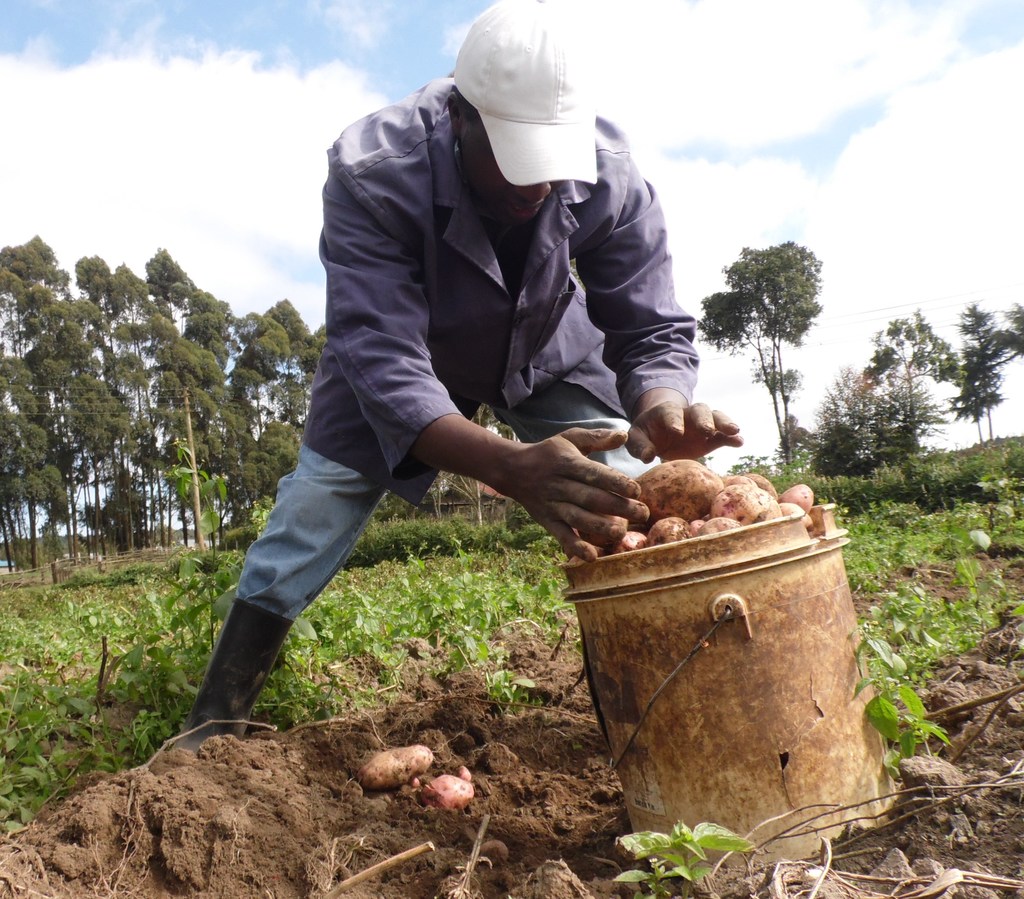Kiambu County farmer, Patrick Njenga, harvesting potatoes from his Kimende farm in 2016. International organisations are working to contract over 23,000 farmers so enable them access potao markets. Photo by Laban Robert.
International organizations have started working together in supporting the more than 800,000 potato farmers access markets besides enabling processors receive a constant flow of quality produce.
In the plan, at least 23,000 farmers from various are to be contracted to deliver at least 63.5 tonnes of the potatoes by mid 2019.
But the overall outlook is to have a total monthly yield of 2,650 tonnes to selected processors.
The East Africa Potato Consortium (EAPC), which was formed in 2015 out of a partnership of Grow Africa, Alliance for a Green Revolution Africa and the National Potato Council, will oversee the contracting process.
There are about 800,000 potato farmers in Meru, Nyandarua, Nakuru, Elgeyo Marakwet, Laikipia, Bungoma, among other counties in Kenya.
But the market has remained a challenge with the intervention of middlemen in the purchase of quality seeds and marketing leaves them exploited.
Under the new partnership, processors will also have a constant supply of the goods, Grow Africa Head of East and Southern Africa Leah Kasera said.
“Farmers produce about 2.8 tonnes of potatoes per acre instead of 12. Maximum yield can be realised with quality seeds, good management practices, among other production factors,” Kasera said.
READ ALSO: Policy positions potato as Kenya’s food of the future
READ ALSO: OLX SMS links potato farmers to buyers
READ ALSO: Curing increases sweetpotato shelf-life from seven days to seven months
Certified seeds would not only guarantee high yields for farmers, but also give the best shape for the potatoes to meet the desire of the processors.
Besides, fast food chips, potatoes are processed into crisps and other products to extend the shelf life and expand the market reach for more earnings.
The Sereni Fries Processing Company Managing Director Humphrey Mburu said the machines are working on about five tonnes per day instead of maximum 15 tonnes required.

















Comments powered by CComment